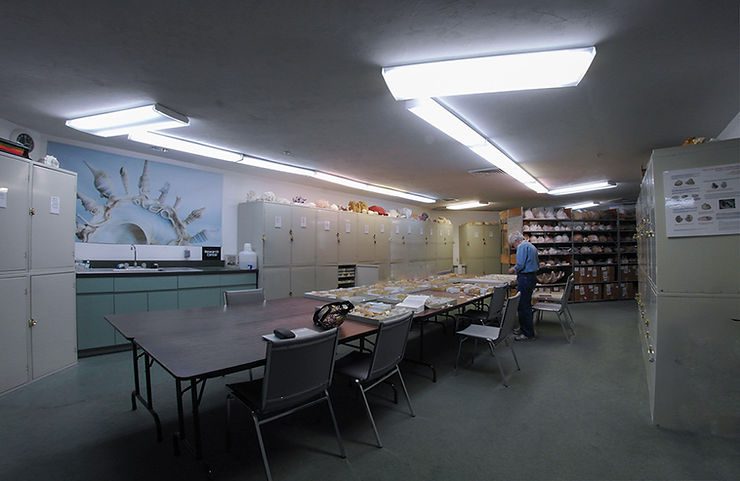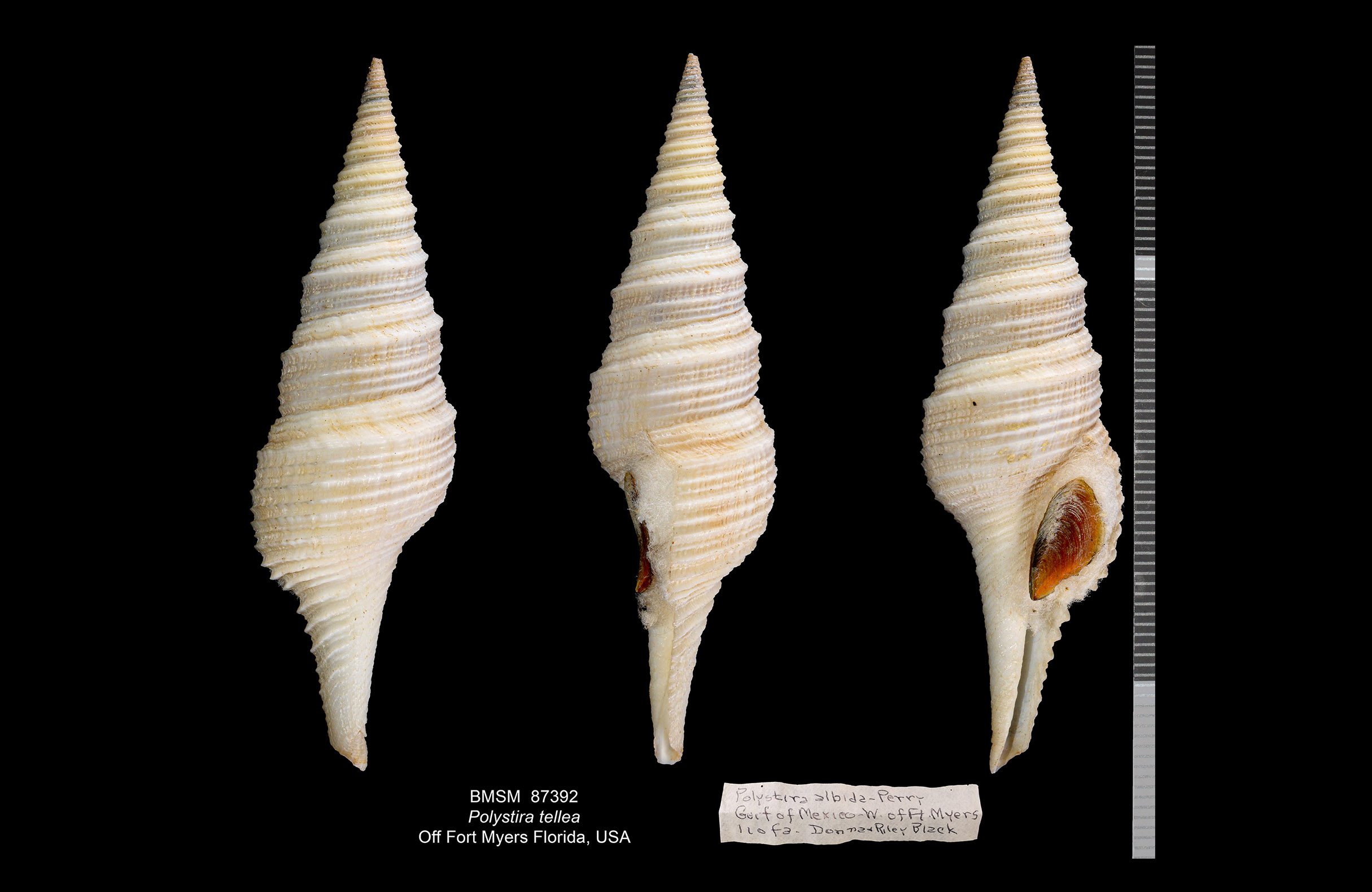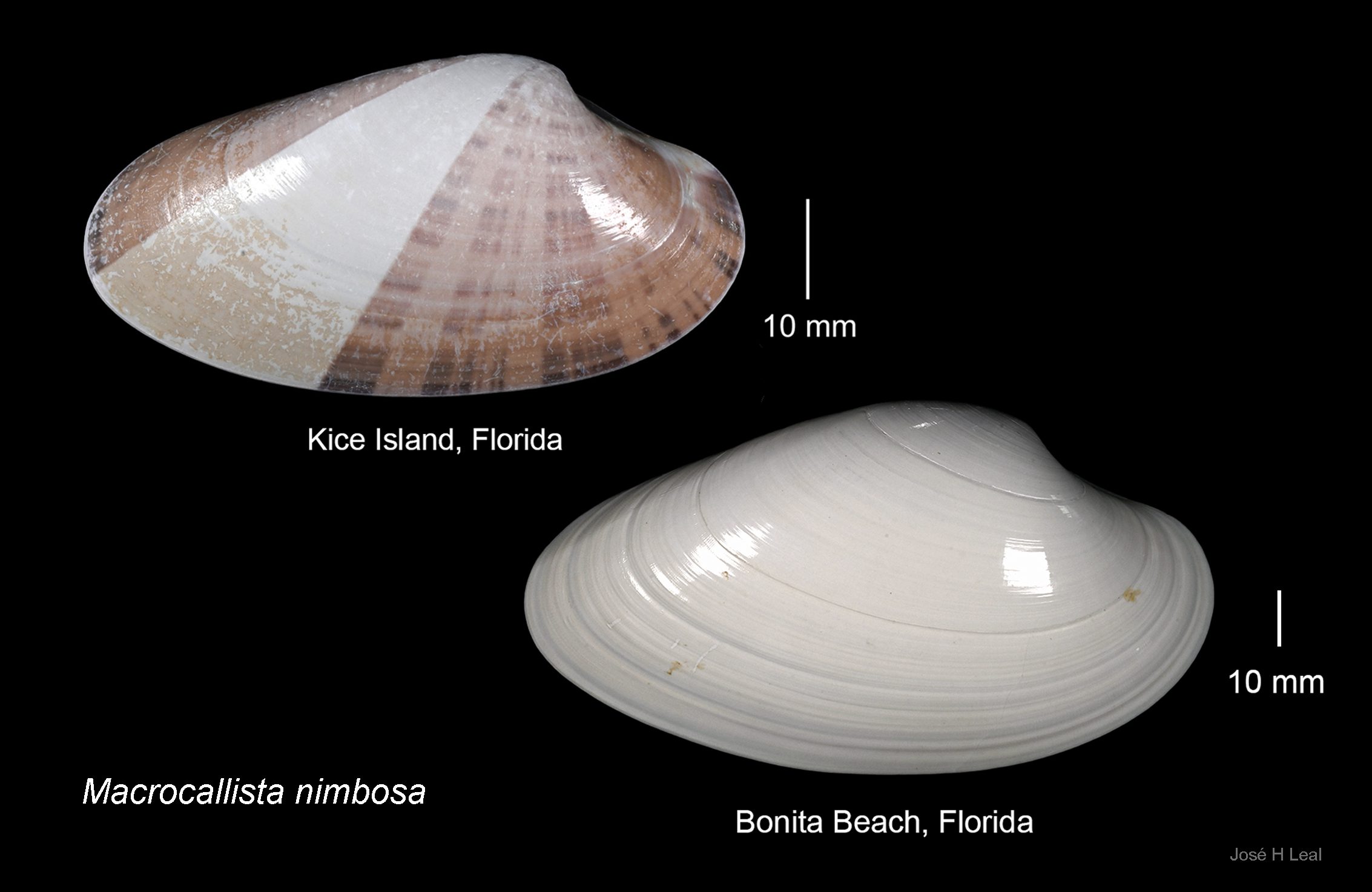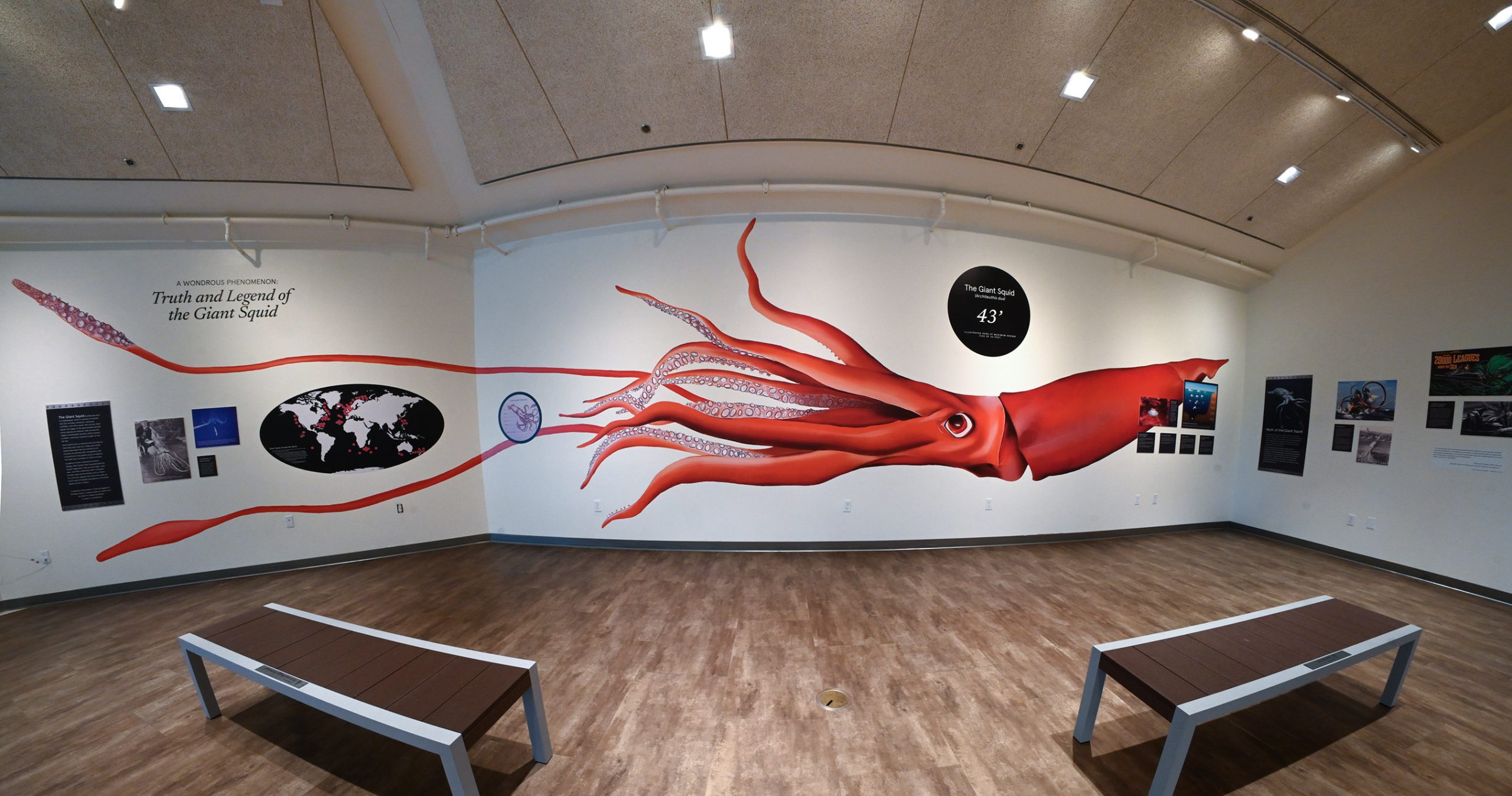I am glad to report that the Museum received notice of grant funding from the National Science Foundation (NSF) for an important collection project. The project, funded via NSF’s Infrastructure for Capacity in Biology core program, is titled “Collaborative Research: Mobilizing Millions of Marine Mollusks of the Eastern Seaboard.” A consortium of fifteen collections* in the US was formed to improve on data and accessibility for about 3,000 species (over 4.5 million individual specimens) of marine mollusks found along the East Coast and Gulf of Mexico.
 Part of the Museum’s collection area (Pre-COVID 19-pandemic photo.)
Part of the Museum’s collection area (Pre-COVID 19-pandemic photo.)
The project, led by the Field Museum of Natural History (Chicago), includes, among many other technical improvements, adding map coordinates that will provide detailed knowledge of species distributions. Because natural history collections have specimens collected from the mid-1800s to present, these occurrence records can help track changes in the distribution of species over time and lead to better fisheries and conservation management. The grant covers four years of collection work, and funding will provide for acquisition of equipment, hiring of specialized staff, and training of graduate students. This award reflects NSF’s statutory mission and has been deemed worthy of support through evaluation using the Foundation’s intellectual merit and broader impacts review criteria. Click here to read the NSF award announcement.
*The collaborating institutions in our consortium are: Academy of Natural Sciences of Philadelphia, Bailey-Matthews National Shell Museum, Carnegie Museum of Natural History (Pittsburgh), Delaware Museum of Natural History (Wilmington), Field Museum of Natural History (lead, Chicago), Florida Museum of Natural History (Gainesville), Museum of Comparative Zoology at Harvard University, National Museum of Natural History (Smithsonian), Natural History Museum of Los Angeles County, North Carolina Museum of Science (Raleigh), University of Michigan Museum of Zoology (Ann Arbor).
Funded via the lead organization (Field Museum): Fish and Wildlife Research Institute (Florida), Harbor Branch Oceanographic Museum (Florida), Houston Museum of Natural History, University of Miami’s Rosenstiel School of Marine and Atmospheric Science.


